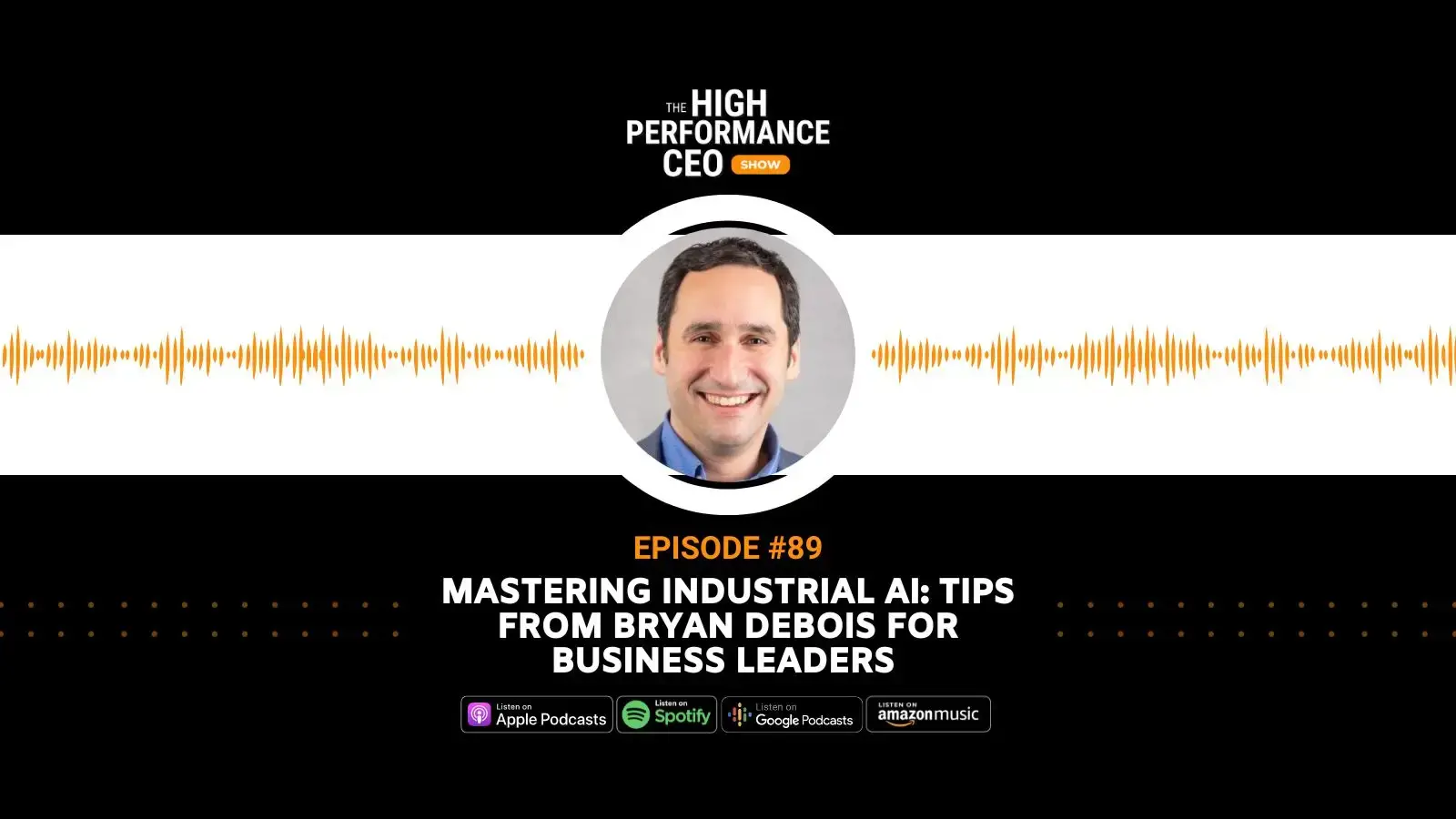24 min read
Top CEO Secrets Revealed: Mid-year Retrospective
Sebastian Schieke
:
Jun 21, 2024 1:30:00 PM
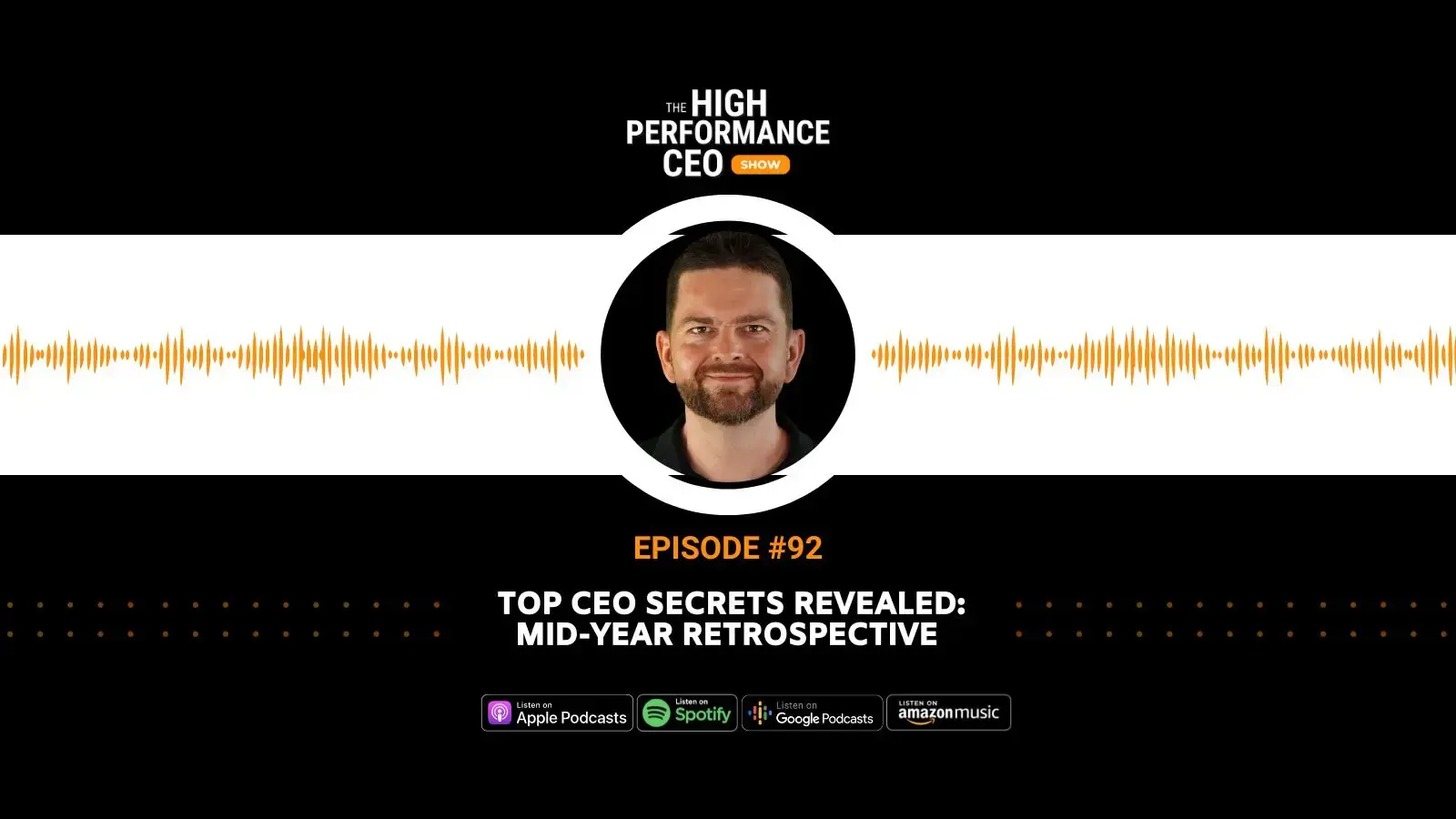
Episode Summary:
Discover business strategies and wellness practices shaping success in our latest mid-year review. Learn how top executives use AI and focus on personal well-being. This episode gives tons of practical tools for modern CEOs to become high-performance leaders.
Technology and Innovation
Explore the latest tech trends and their impacts across industries in these episodes. Learn about AI, FinTech, and robotics. See how these technologies change business processes and set new standards in software development, education, and finance.
AI Disruption in Tech: Advanced Algorithms & Software Evolution
Jake Miller explains how AI is changing software development and raising industry standards with advanced algorithms.
The New Classroom: Integrating AI in Education Technology
Explore how AI and education mix with Julian Schröder. He talks about using digital tools and AI for personalized learning.
Redefining FinTech: Neil's Vision for Banking Evolution
Neil Ambicar talks about his work in FinTech. He explains how new ideas and focusing on customers are changing financial services.
AI Empowered Leadership: The Human Touch
Graham Brown shows how AI can boost leadership by focusing on empathy, creativity, and human connections.
AI-Powered Futures: The CEO Blueprint
Alexander De Ridder talks about using AI in business. It improves strategy, user experience, and innovation in companies.
Enhance Your SEO & Privacy with FastBots AI Chatbots
Jason West shows how AI chatbots like FastBots AI improve SEO and user engagement while keeping privacy.
Building Resilience in the Robotics Revolution
Learn how AI and robotics impact modern business. John McElligott shares his experience integrating these technologies to tackle challenges and seize opportunities.
How AI is Transforming Business Strategies with Emin Can Turan
Emin Can Turan from Pebbles AI explains how AI tools improve business strategies by streamlining operations and enhancing decision-making.
Mastering Industrial AI: Tips from Bryan DeBois for Business Leaders
Bryan DeBois shares practical tips on using industrial AI. He focuses on managing stakeholders and using reinforcement learning.
Leadership and Management
Episodes in this theme explore leadership and management. They focus on skills, strategies, and insights vital for top leaders. Topics include decision-making, holistic leadership, empathy in management, and adaptability.
Mission-Critical: Strategies for High-Stakes Decision-Making
James Murphy shares key lessons from his high-stakes experiences in aviation and business.
The Six Dimensions of Well-being: Abdes Afras's Holistic Leadership
Abdes Afras talks about bringing wellness into leadership and company culture. He stresses a complete approach to workplace well-being.
Empathy-Driven Leadership: The CEO's Guide
Joe Davis offers practical tips for incorporating empathy into leadership, fostering a supportive and unified work environment.
Boost Team Productivity with AI: Insights from Quantifly’s Co-founder
Luka Pregelj explains how AI can improve team roles and boost productivity in organizations.
The CEO's Guide to Adaptability and Innovation
John McElligot discusses using technology and community investment to drive adaptability and innovation in leadership.
Drive Profit and Purpose: CEO Strategy for Impactful Growth
Melanie van de Velde shares ways to grow sustainably. She shows how to be profitable while making a global impact.
Enhance Leadership with Pronunciation: Expert Tips from Rebecca Bower
Rebecca Bower offers tips to improve communication skills. She helps with pronunciation to make leaders more effective.
Mental and Physical Wellness
These episodes explore how mental health, physical well-being, and leadership performance connect. Learn ways to manage stress, the benefits of neurofeedback, the importance of sleep, and how AI can boost emotional intelligence.
The Highs and Lows: A Mental Health Guide for High-Performers
Gary Simonds talks about how mental health and leadership connect. He gives tips on handling stress and boosting well-being.
Transforming Executive Performance Through Neurofeedback
Eveline Goodman looks at how neurofeedback can boost leadership skills and enhance well-being.
Fostering Emotional Intelligence in the AI Era: A CEO's Guide
Paul AI Allen talks about how AI can boost emotional intelligence and create a more empathetic workplace.
Sleep Your Way to the Top: Bijoy John's CEO Success Secrets
Bijoy John explains how getting enough sleep can boost decision-making, creativity, and leadership.
Entrepreneurship and Business Strategy
This category shares the journeys and strategies of successful entrepreneurs in various fields. Episodes feature real-life stories of taking risks, making data-driven decisions, and strategic changes that lead to success.
ECommerce Mastery: Heather Udo's Journey to Reshaping Online Retail
Heather Udo talks about her journey in ecommerce. She shares new strategies that have changed online shopping.
Taking Risks: Matthew Pezon’s Road from Corporate to An Entrepreneur
Matthew Pezon talks about his switch from a corporate job to starting his own business. He now focuses on real estate and affordable housing.
The CEO's Guide to Data-Driven Leadership & Resilience
Cary Sparrow talks about moving from the military to becoming an entrepreneur. He highlights the importance of using data to make strong business decisions.e.
Pivots & Growth: Unveiling Morph Costumes’ Success Blueprint
Fraser Smeaton shares how quick actions and smart changes helped Morph Costumes succeed in a tough market.
Conclusion
High-performance leadership combines key skills and strategies. These episodes show the importance of emotional intelligence, data-driven decisions, wellness, and strategic changes.
As a high-performance leader, how do you balance new ideas with practical steps? What strategies can you use to ensure your business not only survives but thrives?
Read the full transcript here
-
Transcript
[00:00:10] You know, Sebastian, a lot of organizations are suffering at the execution level because they're task saturated.
[00:00:16] And what is task saturation? That's the perception or the reality that each and every one of your individuals on your team have too much to do, not enough time, tools, or resources to get the mission at hand accomplished. And as a fighter pilot, I've realized that this is the silent killer to execution.
[00:00:34] Because as task saturation increases, errors increase, and performance decreases. that perception that an individual has that he or she is task saturated.
[00:00:45] As a leader, it's important for you to recognize that. And that's where you do your leadership coaching. That's where the mentorship comes in. There's where you give tools to the person and resources. So they then see that potentially the task [00:01:00] saturation is caused by themselves or their own internal environment.
[00:01:03] So that's an important role. In the phase of execution as a leader.
[00:01:07] we need more business knowledge. and less technical knowledge because the technical knowledge will be provided by the bot. That's right. There's also an interesting parallel to mRNA. So bear with me first. you know, mRNA technology, and not an expert in this area, but I know enough to be dangerous, mRNA being studied prior to COVID.
[00:01:25] But the big breakthrough was, Hey, the way that we can build vaccines. For viruses has drastically changed much easier to do now and it's faster to develop those And I think It's analogous Or parallel in AI, where the breakthroughs in how we can train the models specifically with deep learning and, you know, the, the models behind large language models is allowing the general population to push the boundaries versus just experts in those spaces.[00:02:00]
[00:02:00] So we're able to develop solutions way faster than we're able to in the past. And that's been a drive drastic change in how we. What
[00:02:09] our technology is one of a kind.
[00:02:12] So it always takes a minute to, Help people understand what the technology does. So we are universal checkout technology, which essentially allows a company of any type, whether it's a publisher or a media company or some type of brand or advertiser or an influencer, any type of company like that, that wants to sell products on their site, or they talk about products in their articles.
[00:02:39] And, but they, They don't want to actually hold the inventory and be a full e commerce business. So they use shoppables technology to basically embed buy buttons into their content where they can sell products from name brands, from top retailers, and they can actually help [00:03:00] their shoppers complete a purchase from within their owned environment.
[00:03:04] for a lot of entrepreneurs, documentation is a dirty word, right? And no one wants to write things down and I have to record this and I don't have time for that. and that was me for a long time. But then I discovered that I was hitting a ceiling.
[00:03:18] My wife and I have three children under three. I reached a point where I had to choose between, do I want to be a good husband and father or do I want to do this task? And I struggled with that balance because my mindset was for a long time.
[00:03:31] If I wanted to do something right, do it myself. And I quickly found that I was, running out of time in the day and I was getting burnt out. and I was also doing things that weren't driving the business forward. They were delivery items and not sales items, not growth items. So now my, my time is spent mostly on growth and building our brand, building our awareness, sales management, and less on some of the delivery functions.
[00:03:56] but it's important to really see the point where you have to [00:04:00] change and where you have to hand things over. And have the right mindset that you don't need to do everything on your own, which is very important. It's impossible to do everything on our own, but at the same time, it's also difficult sometimes to let go for the entrepreneur.
[00:04:13] I know it was for me. You need to stop spending the time doing the task and instead training, coaching, and empowering others. To do those items, which comes with its own new set of challenges as you transition from a doer to a leader.
[00:04:25] I think a lot of people see a brain. As pretty much like a computer that you've got a bunch of wires that are all connected and they fire between each other. You know, all these little channels fire and the wires talk to each other. And somehow whatever computers could do and whatever our brains can do comes out of that.
[00:04:48] Okay. And you can get into deep, you know, deep discussions on how we do anything with, with that setup. But anyway, I think a lot of people think that the brain's just like a computer [00:05:00] in that in a factory, you make sure all these wires connect and that's the computer you're given and that's computer you'll have.
[00:05:09] You can put all sorts of software into it, like our learning and teaching, but. You're still pretty much hardwired for, you know, upgrade your hardware. You can't get the next shiny Macbook. You got to buy a new computer, right? Which we can't do. But the reality is it's not that at all, that the nervous system, that the brain is constantly remodeling like all the time, constantly.
[00:05:35] Okay, we learned that you create individual learning paths for the students, which are based on their experience, based on their current state. And you enhanced a whole educational process with artificial intelligence. Yes, exactly. Adding AI to the platform, using probably AI also for knowledge management.
[00:05:55] The amount of knowledge, and this is fascinating for me when I work with [00:06:00] AI We have so much knowledge available, but distilling the knowledge and really trilling down on certain aspects. There, AI can do a fantastic job, you and when you take the knowledge for a certain subject in university and feed this knowledge into this AI, then it can generate all kinds of new training materials, questions.
[00:06:22] Looking at this knowledge from distant different aspects and I think there's the power of AI and when you use this Educational space then this is a real game changer yeah, 100 and there's also a very interesting aspect because in our software the AI supports the educator, supports the administrator.
[00:06:41] We don't want to replace them. We want to make all the processes more efficiently. So this is the way we need to go of course some aspects can get replaced, but in the end it needs to be more supportive. And this is also the way we are chosen. And I think this is also the aspects where the educational [00:07:00] institution wants to move forward.
[00:07:02] In those supportive things
[00:07:03] the challenges you have in this space is It needs to be de stigmatized and that's a pretty big challenge because people think I don't need coaching.
[00:07:11] it's nothing wrong with me, you know, exactly. Yeah. I don't need it. It's not therapy, but even nothing wrong with therapy. So I love soccer slash football, Ronaldo is the best example who. he's been coached in all areas live, although he's been to be careful, the goat or the second goat, the best player in the world. So we need to learn that coaching is going to help me if we have the right coach. And that's why we're built well of you. We want to help.
[00:07:38] To bring the right coach to you. And because we have a vision, but I also have a mission to make coaching personal development as accessible and as affordable as possible, basically to everyone.
[00:07:49] and the need is everywhere. it's not a luxury, shouldn't be a luxury to have coaching.
[00:07:54] I saw a lot of these problems with global payments.
[00:07:57] And the, problem we are trying to solve is that how can we [00:08:00] help like small businesses, like cut down on all these international payment fees. These times effects fees and we ran immediately into the problem that let's be honest No vc is going to give you money Just for an idea.
[00:08:12] So in a way like the bootstrapping happened more like we had no choice, you know Because like hey, it's a great idea, but you need to go get the license, but the license costs a million euros So, how do I get this license? So How do we get started if we have no money?
[00:08:26] So the first thing we did was we actually applied for a lot of like accelerator programs from big banks, because we're like, Hey, if you're with big banks, maybe we can build like piggyback on their infrastructure. So that's how we got started Then we took part in the MasterCard program. So MasterCard selected us as like the top five fintechs in Finland to be part of that program.
[00:08:47] And immediately people are like, Hey, you know, Narvi, they're working with MasterCard. We should take them seriously. So there are ways you can do this. without actually spending a lot of money. So for example, to get into the MasterCard [00:09:00] program, there was no money involved, like it was just about telling them the story, like I'm telling you that, Hey, this is what we do.
[00:09:07] This is the problem we're solving. Having an interview and we got selected, but the marketing and the value, this sort of, you know, Let's say the program is generating for us is, you know, limitless, you know, you cannot, you're getting effectively sort of an endorsement from MasterCard, which is a global brand.
[00:09:24] Graham Brown: we're now seeing, a real focus in leadership on terms which we never really talked about 10 years ago.
[00:09:32] Graham Brown: So we're hearing words like authenticity, empathy, and, you know, authentic leadership. What exactly is it? There's a real push, isn't there? Especially since the pandemic, people are asking these questions. What type of leaders do we need? Do we need that very strong, authoritarian, top down leader, or do we need these sort of empathic, understanding, caring leaders?
[00:09:55] Graham Brown: And so there's a big question about what is leadership now? And one of the reasons why [00:10:00] we're asking this question, Sebastian, is because of AI, because AI is able to do so many things now that human beings have been able to do in the past, you know, very basic, tasks, which are being taken up by machine all the way up to doctors.
[00:10:15] Graham Brown: For example, if you think about what a doctor's job is, you know, 60 of a doctor's time, especially the top consultant, 60 percent of their time is looking, if you take away the paperwork, is looking at scans, is looking at patterns So you go to a doctor, you get a diagnosis based on information and patterns.
[00:10:37] Graham Brown: So you have these very high-paid professionals, like leaders, whose job effectively is looking at patterns. And if we're talking about pattern recognition, then, you know, AI kicks in, exactly. And it's actually very good at it.
[00:10:51] Alexander de Ridder: So what we're going to see in this new economy is that AI agents are going to also start conducting [00:11:00] transactions with other AI agents. These will be microtransactions that will likely happen over government sanctioned blockchains and they will have trillions of transactions per day.
[00:11:11] Alexander de Ridder: So when this happens, this is going to happen and start happening this year You see it start happening with Windows with the copilot integration, but this is going to become more and more a thing Do not forget that this is the biggest economic opportunity for these large companies in the history of humankind and that winning over consumers to use your AI systems is the way, the gateway, just like the browser wars before it and how you win the consumer market over.
[00:11:39] Alexander de Ridder: So, as they are going to try and get consumers on their ecosystem. This is going to be an all out charm offensive with amazing features and new things that are irresistible for the consumer. Then consumers are basically that demand is now created where companies have no choice but to be present in these new [00:12:00] omni channel organic.
[00:12:01] Alexander de Ridder: Marketing areas and so this there creates the need, not just optional need, but it is like not being in a phone book in 1990 or not having a website in 2020. You do not exist if you don't have it. So there's not a, it's not a question of. If right, it's really just a question of when
[00:12:20] Carry/Kerry: tech companies are already pivoting into AI to take advantage of those capabilities, which means that if you're a tech professional and your job is around coding, then you need to be thinking a few steps ahead in terms of where your career is is going and how to take advantage of that kind of capability, not run away from it, but take full advantage of it.
[00:12:37] Carry/Kerry: Because Companies are adapting very, very quickly. Other areas that are content heavy, like marketing, for example, I've got a number of friends that are in, marketing and we do this ourselves. We use, the usual suspects in terms of online, large language models to write content.
[00:12:52] Carry/Kerry: I just hired a position that, this last week where the job description, I just basically talked or I typed as I talked to say, here's what I wanted [00:13:00] to do. And I got a, very, very well put together job advertisement that I, you know, it was like 98 percent there.
[00:13:06] Carry/Kerry: I just had to make a couple of tweaks. and again, it's a question of how do you take advantage of these new capabilities and, how do you become resilient? And pursue the opportunities that they represent, but it's happening really, really fast.
[00:13:16] Fraser: If you can hire great people and put your effort into that, and these are people with great problem solving skills, it does take a particular skillset in a fast growing business because you don't have all the information. So you have to deal with ambiguity and people who can make decisions and solve problems with incomplete data sets, put them in the right roles and give them clarity on the vision.
[00:13:36] Fraser: Then you get support. solving those problems fast as they come up. But you also have to accept you're gonna make mistakes. And you just have to deal with them as quickly as possible. Make sure you fix the critical ones. Don't worry about the other ones. And then as soon as you've got time, you go back and loop back around and fix the other businesses.
[00:13:54] Fraser: And if you're continually fixing things and continually improving your processes, [00:14:00] it's not my idea, but it's incremental gains that David Brailsford talks about, and you're continually improving every little bit before you know it, you are miles further forward than you thought you were. And for example, in our, growth phases, the first one, where we went from 1 million in our first year to 11 and a half million in our third year.
[00:14:19] Fraser: And then we had the tough times and after another four years, we'd reduced it back down to 6 billion. Then going forward from that, we went, in the last four years or so, we went from 14 million to 20 to 33 to 42. so we've gone through it all again, and it's put different pressures on the business But we've taken the lessons from the first growth period and the mistakes we made there, and we got the right people in place this time.
[00:14:43] Fraser: And we've gone through it a lot more smoothly than we did the first time.
[00:14:46] Bijoy John: So, I heard this all the time. people saying, I can sleep when I die. I tell people,
[00:14:52] Bijoy John: if you're on this path, you literally are going to die, right?
[00:14:57] Sebastian: sooner.
[00:14:58] Bijoy John: affects your [00:15:00] cardiovascular, you know, it controls blood pressure, diabetes, so all those have significance. So, you know. Somewhere along the line, there is this confusion. There are few people in this world, for example, Elon Musk and, you know, previous President Trump and President Obama. They are called short sleepers. You know, they can function with very little sleep. Even Elon Musk came and said, Hey, you know, I am a little different. Make sure you guys sleep. He was used to force everybody to, you know, he took sleep for granted. Now he realizes the importance of sleep and he's encouraging everybody to sleep. You know, so very few people. Who are called short sleepers can work in four or five hours sleep, but most of us need seven to eight hours. So we heal in our sleep, our memory gets consolidated, everything gets arranged. So sleep, you know, if you sleep seven hours, you actually, you can perform better by sleeping an extra. So our brain is like a supercharged computer and it needs rest. They need to organize things, you know, form new memories, consolidate things, what you learn, ,
[00:15:58] Sebastian: what is near [00:16:00] feedback?
[00:16:00] Eveline: it just goes without saying it's a feedback that your brain gives to you. To the brain owner, so that he or she can see how my brain is reacting in certain situations. Right. , game changing experience for those who try and who use this regularly namely then they know, okay, when I'm unplugged and then.
[00:16:22] Eveline: Meeting situation, but we plug them in for those situations that raise their high beta brain waves in the stress brain waves. So, I mean, we train executives here who have got really stage fright problems. Right. So that, you know, they say, well, you know, 200 people around the world is taking a look at me right now online.
[00:16:42] Eveline: And it's an internationally operating company, for instance, and then says, well, I mean, I know top managers who regularly take a shot and beta blocker before such events.
[00:16:53] Sebastian: What do you mean by A shot A shot of,
[00:16:55] Eveline: A shot of something, a whiskey or I don't know [00:17:00] what on the Iraqi or Uzo.
[00:17:02] Sebastian: know what, always gets me is when I travel and for example, I, take an early flight. And walk around the airport and there are people in business suits sitting there drinking beer
[00:17:11] Eveline: Yeah, it's so cool.
[00:17:11] Sebastian: six or seven in the morning. you know, I said, Oh my God,
[00:17:14] Jason West: I've heard this example mentioned a couple of times by people and I think quite a good one. It's like, you know, artists back in the day doing their paintings and then come along photographers. And you think straight away, well, why would you bother to sit there painting a picture when you can get just a perfect, perfect.
[00:17:31] Jason West: copy of that scene, you know, with a camera. That's it. All artists are out of business. Well, of course that wasn't the case, but things did change. And then, you know, photographers ended up making a fortune out of photography and that's another whole new industry and business now. So just because something new that could take over a little bit from the previous thing comes along, it doesn't mean that we're all suddenly Going to be made, you know, redundant as it were, and I think at this [00:18:00] stage of the game you know, it's fairly obvious what AI could take over and which jobs could be in danger at some point.
[00:18:10] Jason West: And, you know, the thing is, is as people, we have to look ahead a little bit and think like that and think, right, you know, is what I'm doing now possible going to be taken over? Is it? and sometimes you have to face the truth. and accept the fact that things are changing and you either move with them and adjust or you potentially go down.
[00:18:28] John McElligott: I've been very good at seeing the curve. The key is, AI is everywhere, it's not whether you use AI, it's whether you use it differently than everyone else, in an age where it used to be like knowledge is power and it's like, you can Google anything and knowledge is about to change its secret knowledge.
[00:18:42] John McElligott: Like if you're using it differently, like you're using it in ways that are unexpected, then you can do like the kind of like social hacking that I did. was right when this happened, I started to talk very heavily about robots and AI because I knew it was coming.
[00:18:55] John McElligott: I was like, Oh man, it's starting to happen. Like the curves coming.
[00:18:58] John McElligott: now I'm riding the wave [00:19:00] before I was like dragging the train.
[00:19:01] Paul A I Allen: humanity is Witnessing the emergence of the greatest technologies that have ever been birthed in human history, and we can harness them for good.
[00:19:12] Paul A I Allen: Let's do that together. Or we can harness them in greedy ways or in controlling ways, and I think if enough people. Choose the path forward, which is humans should be in control of these tools. Individuals should have personalized AI that guides you and uplifts you throughout your life and helps you reach that level of thriving in every area of your life.
[00:19:35] Paul A I Allen: And if it, if it notices that you're falling short in some area, if you're lonely, if you're unhappy at work, then it can guide you to a better job or to a better manager or
[00:19:45] Paul A I Allen: to closer
[00:19:45] Paul A I Allen: friendships.
[00:19:46] Paul A I Allen: So one of the things that humans can do with the help of AI is find the models of success in every area of life. Who's living a healthy life, who has a happy marriage and model that the AI can help us understand the [00:20:00] actions, the behaviors, the thoughts, the things that happen and don't happen in a successful model in a country.
[00:20:06] Paul A I Allen: What is it about Finland in their education system? I know they value teachers. Almost all teachers have master's degree. They let children play. there's a lot of things that I've been reading about Finland, and now you're telling me that they have a healthy view of technology, helping them live happier, healthier lives with a better work-life balance.
[00:20:25] Paul A I Allen: I love that. So the, opportunity for all of us. Is to study and find successful models in all the areas of life that we want to be successful in and then to use those models as guides to our own journey through life and AI can help us live up to that model.
[00:20:43] Luka Pregelj: You know, oftentimes bosses or even top management says like, Yeah. but our people do not take any responsibility. They do not hold any accountability for their actions. Okay, sure. But if you constantly focus on that, then [00:21:00] they would rather avoid the blame. Then take any challenge or take any risk, right?
[00:21:06] Luka Pregelj: And this is how You kill innovation in your company. And ambitious people, creative people will leave The organization because it's in their ethos, it's in their heart, they need to create. And so if you drive all of them out, then sooner or later, you'll be just an organization that keeps exploiting the business model that it had, I don't know, 10 years ago, but the market keeps changing.
[00:21:27] Luka Pregelj: And sooner or later, you're falling behind, you're dead. And the way to, to really solve this problem Transcribed It's actually quite simple, you know, give people more responsibility. And instead of focusing on who is to blame, let's focus on what happened that this went wrong. So focus on the what, not the who, and if you can solve the process problems, then the who is less likely to happen
[00:21:53] Joe Davis: you can be a very good technical business person. You can be a very good manager with all the [00:22:00] tech. And then are you going to step up into being really a very good leader? And then I think, you know, I call it a generous leader.
[00:22:06] Joe Davis: I just use the word servant leader. Are you going to step to the next level or actually what you're thinking about is how to make everybody else. Be the best they can be. And of course, indirectly, you're going to benefit your organization, but more importantly, they're going to thrive, you know, and yes, and there's probably a step above that if we talk for a while, that's a real, well, real is the wrong word.
[00:22:26] Joe Davis: That is the most holistic leader, I
[00:22:28] Sebastian: A modern leader, when you look at history of leadership, I mean, in the past, you always associate a leader with, he's the boss. He
[00:22:35] Sebastian: has the power, he's tough. You know, he makes a decision. We don't argue with him. He's always right. And nowadays you cannot be always right.
[00:22:43] Sebastian: I mean, in fact, I would argue, I love to hire people who are more intelligent than me. Because I mean, they should know what they do. You know, I don't want to know every detail of what they are supposed to execute. So they should be better.
[00:22:54] Joe Davis: Yeah, I'm with you. I
[00:22:55] Melanie Van de Velde: But what can you do? That's actually really impactful. What's [00:23:00] that 20%, at least 80 percent of the outcomes. And that really fits with your business and that's going to create that much bigger return in terms of impact, but also much bigger competitive advantages because, yeah, I think it's good to touch on that point because you're saying indeed, like, younger people want to work for companies that do this better, but people are starting to ask questions about that, particularly in the U.
[00:23:22] Melanie Van de Velde: S. and I understand why because It's true, if you are more purpose driven, studies like Deloitte show companies grow three times faster, right, through better customer loyalty, customer referral figures. 86 percent of millennials say they'll work for companies with a pay cut if there is more of a purpose, that, that kind of thing.
[00:23:43] Melanie Van de Velde: But there is purpose and there's purpose. There are so many companies that started this. That were innovative and, you knew about that. And so, like, I put Patagonia, for example, and interface, they're the ones really get those benefits. But if you're more [00:24:00] following and you're compliant with regulations.
[00:24:03] Melanie Van de Velde: People don't get as excited about that. If you as a company start to recycle, it's unlikely people are going to come on specifically work for your company because you're a cycle. Do you know what I mean? There is a difference,
[00:24:14] Melanie Van de Velde: right? And so I think if you want to, get big impact and you want to be attractive to talented people, to get customers excited, to be more loyal, to refer you to friends and family.
[00:24:26] Melanie Van de Velde: It takes something else, and it takes doing something that's really effective.
[00:24:31] riverside_bryan_debois_raw-synced-video-cfr_sebastian's_intervi_0150: it sounds futuristic. It seems like it can't possibly exist today. It seems like something that's still down the road, but we have actual customers that have it deployed and are solving production problems with this autonomous AI. What makes it unique? is that it does what everyone wants AI to do, which is that it doesn't just make a prediction.
[00:24:50] riverside_bryan_debois_raw-synced-video-cfr_sebastian's_intervi_0150: It actually says, based on the current state of the system, here's your next best move. Here's your next most optimal move. And that's, really what our customers are looking [00:25:00] for.
[00:25:00] riverside_sebastian_schieke_raw-synced-video-cfr_sebastian's_intervi_0149: Interesting. And what kind of customers what kind of industries are applying these solutions?
[00:25:06] riverside_bryan_debois_raw-synced-video-cfr_sebastian's_intervi_0150: it's pretty widespread. So we've got customers we've got food beverage customers that are doing this. But then from there, we've got a glass bottle manufacturer that's using this thing. We've worked with paint manufacturers. We've worked with company that, that makes a baby formula.
[00:25:22] riverside_bryan_debois_raw-synced-video-cfr_sebastian's_intervi_0150: And so what we really get excited about with this autonomous AI approach is that we can use a single technology to solve a lot of different problems, which we love that as a system integrator we're looking for. It was, it's, it reminds me if you're familiar with in our world, we have these time series databases called historians and they've been around now for 20, 25 years.
[00:25:45] riverside_bryan_debois_raw-synced-video-cfr_sebastian's_intervi_0150: And it reminds me of that same arc that we had with historians in that it was a single technology time series database, but it could solve problems for all kinds of different industries and solve lots of different use cases in any one client. that's what we're seeing [00:26:00] with this autonomous AI approach.
[00:26:01] John 17: those web of agents that can help you or the other B2B leaders essentially go to market faster. Because that knowledge really sits at the strategy consultancies like McKinsey, Bain, BCG or leading tech companies like Meta and Google. That knowledge and skill and know how is really monopolized and it's not something you can Google. Open AI is trained on publicly, mostly publicly available data, not in hidden IPs. But we have it. and, the,
[00:26:34] John 17: best way to describe this is, is that we are building a neurosymbolic AI, which is in simple terms an AI that is built for human problems that thoroughly exist
[00:26:48] John 17: which is meant to solve a problem.
[00:26:50] John 17: That truly exists. So the reason I'm saying that is because of most AI Companies from our very comprehensive Blue Ocean market analysis show that [00:27:00] they're building solutions from an RND Perspective. They're building very like engineers built very cool technologies
[00:27:08] John 17: but they're not solving problems.
[00:27:10] John 17: So like, okay, here's this amazing tech, where can we position this?
[00:27:15] Rebecca: so the, way I look at it is a bit more analytical. I like to look at the data of your speech, kind of pull it into numbers. So the way I like to look at it is what percentage can we improve each and every one of those main goals? And we can do that by a pre and post assessment and really identify that.
[00:27:35] Rebecca: And then, you know, when we're done a program, even from there, even if you've made significant changes, you know, What you can continue focusing your time on. You know what to do. It's just, we're just going to spend our time on this one thing. And really when it comes to instruction, it's very simple.
[00:27:52] Rebecca: It's a simple process, but it's, it takes time. It takes time and it takes understanding. So we're working on getting you to [00:28:00] not only understand what your issue is. So let's say it's R. That's a struggle sound. We're going to know how to create that sound in a very consistent way, and once you can do that, we're moving on.
[00:28:11] Rebecca: We're going to go to word level, then phrase level, then sentence level, then reading, and then conversation. And I think for a lot of people, they want to jump. Of course you want to jump. You want to use what you know. So you know how to say the sound maybe very well, and maybe even in a couple words you can say that sound well.
[00:28:32] Rebecca: But when it comes to conversation, it just does not come out. It doesn't translate. And that's because we're skipping some steps that we need to master before we get to that conversation level. And that's usually where, I mean, I help people with all those levels, but usually that's the big problem is like, how do I use this in a functional way every day in my conversations, in my work meetings, and then feel good about how I'm doing that.
[00:28:58] As a [00:29:00] listener of the High Performance CEO Show, you are already part of a community that values growth, excellence, and pushing boundaries. I created the High Performance CEO Hub, which is a free community where you can connect with me and other listeners.
[00:29:21] Get behind the scenes insights, learn how to improve performance and efficiency, and find accountability partners to grow together. Go to www. thehighperformanceceohub. com and join us today. It's free, it's valuable, and it's waiting for you.


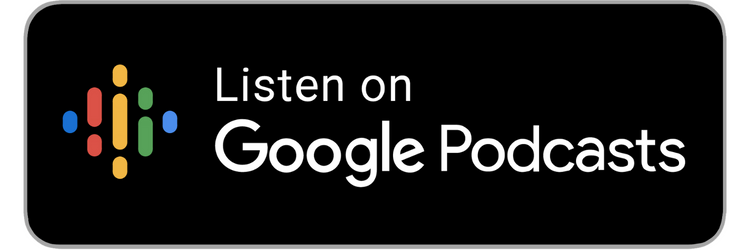

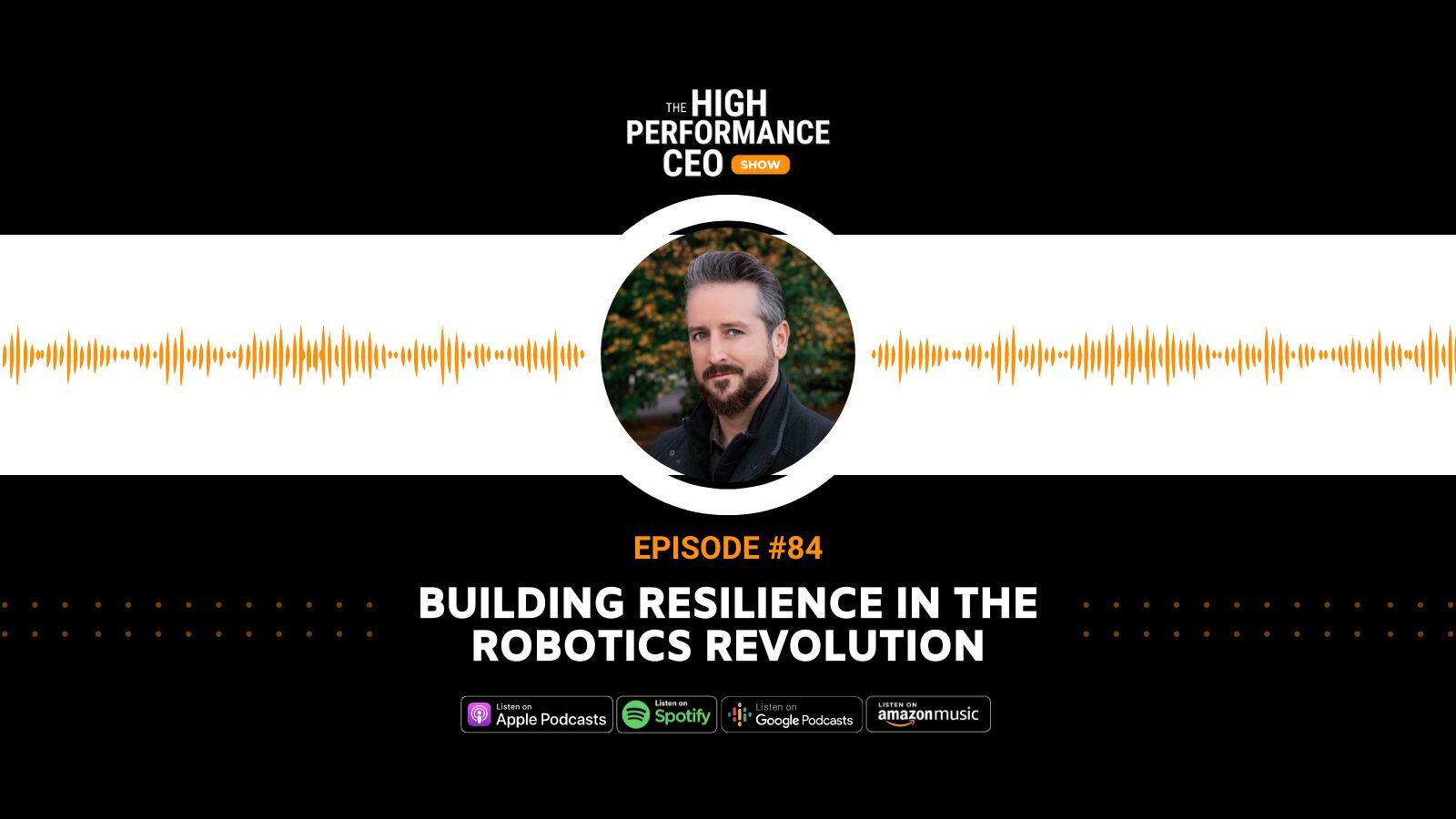
-1.jpeg)
